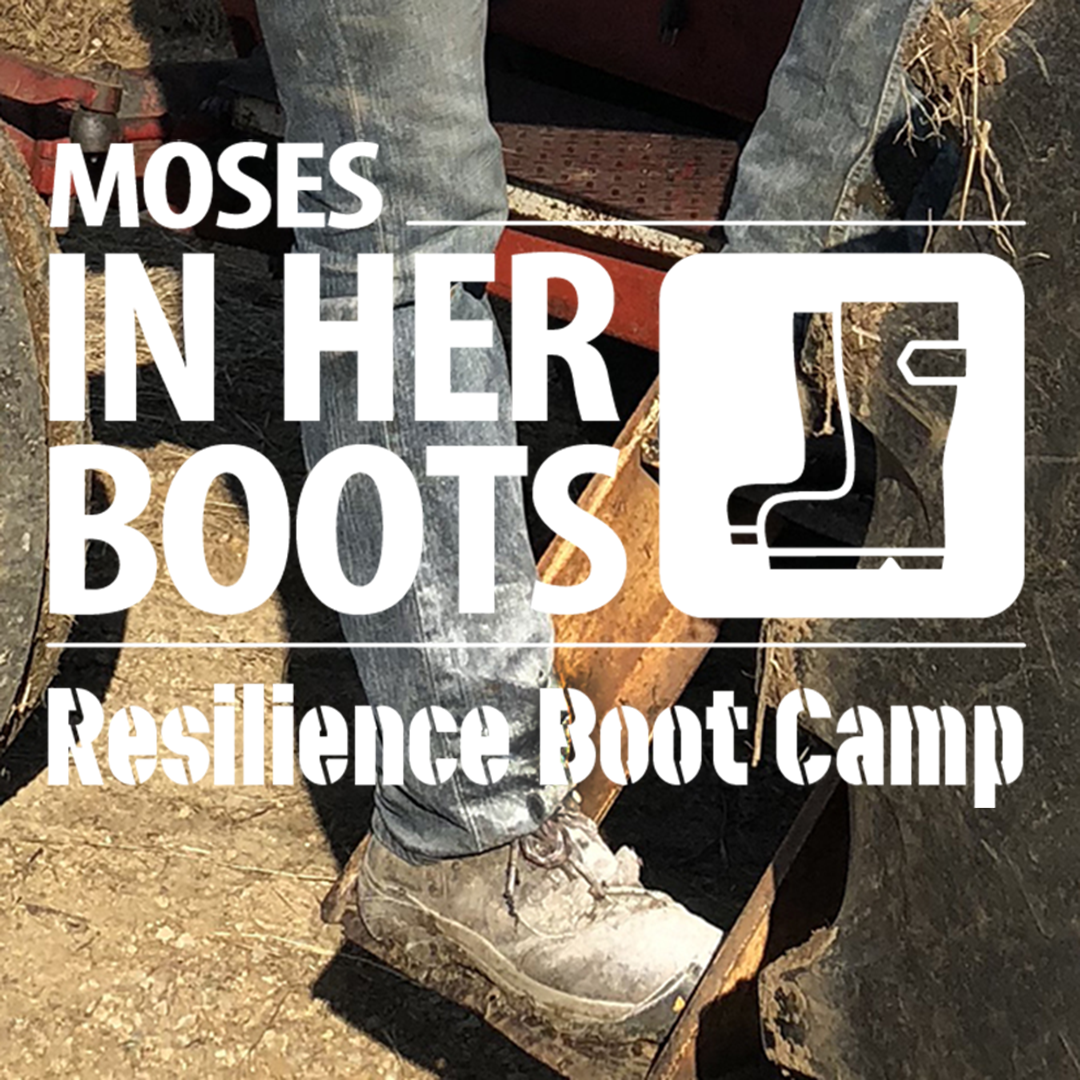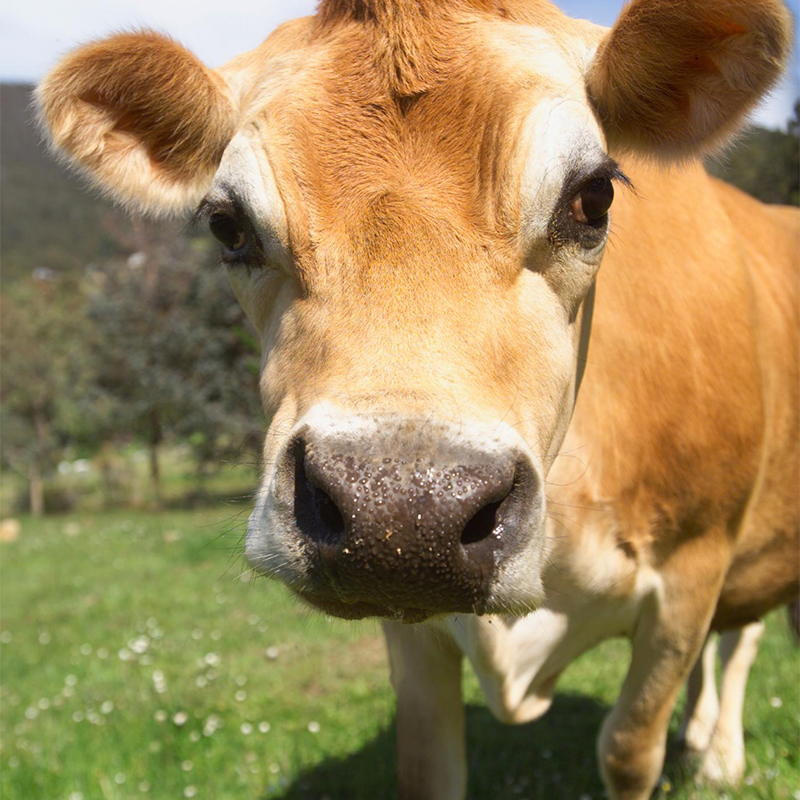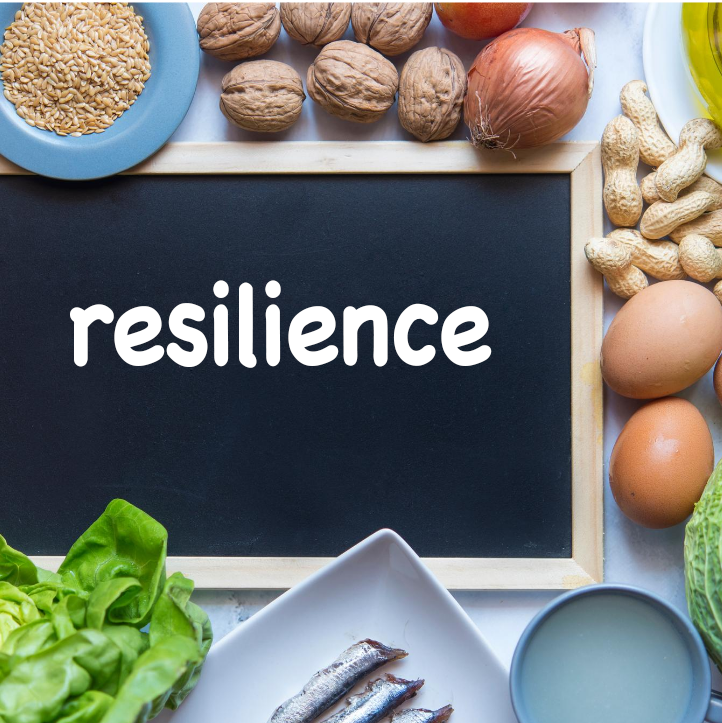|
|
 |
|
|
Grit is defined as that “perseverance of effort combined with the passion for a particular long-term goal or end state.” It also means courage, resolve, and strength of character—qualities we all need to keep farming through the inevitable rough spots. Mariann Holm has shown true grit in her life and farming career. I hope you'll find inspiration in her story, which she shares this week on our In Her Boots podcast. Don't forget to sign up for our webinar TOMORROW (Aug. 18) with Denise O'Brien. We expect a lively discussion on the ways we women farmers can support each other. If you can't join in the conversation, please register to receive the recording and follow-up materials. Remember to plug into the women farmer community through our Facebook group. This community has a lot of experience and can be a great sounding board to help you maintain your resolve in the face of challenging times. Lisa Kivirist, MOSES In Her Boots Coordinator |
|
|
|
Cultivating Grit
By Mariann Holm Farmer & Organic Inspector 1. Research then start. After we made the decision to trade our corporate California life for the farm, there was a lot of learning, which is the enjoyable part for me. I do love to learn. I like research and going to conferences and reaching out to people who have been there and done that. But at the end of the day, at some point you have to simply start. We could read a book about making bread and watch videos and then become very intimidated and never put that pan in the oven ourselves. |
|
|
|
2. Grow compassion. When I was sick, I kept asking myself, "what's the lesson here?" Can I quickly learn it and move on because this is not fun! My whole bout with cancer made me more compassionate for other people during their times of illness and struggle. I realized when I was ill that some people turn away, and maybe that's just because of their own feelings, too. They don't know what to say. 3. Use chore time for thinking. A benefit to farming is that often when you’re working with your hands and are on autopilot, you have time to think—if you take advantage of the moment. Use that time for contemplation to figure out your purpose. What is the purpose of this? Am I raising corn? Or am I raising kids? For me, it isn't about selling. Yes, we do need to sell. Yes, we do need to do the chores. But for me, the important part is the principles and values behind what am I doing 4. Channel history. I channel history and think about the people that lived here a hundred years ago in my house. I have an old picture of these people standing outside underneath the same oak trees, only they were little and not these giant oaks that are standing there now. Are my problems any different than theirs? Just having that historical perspective to know that our great grandmothers dealt with health issues, relationship issues, market issues. That sense that historically we're not alone and connected to farm women before us fuels my strength. 5. Put your mask on first. I don't think it's intuitive for us as women to put our mask on and take oxygen first. A lot of times we end up with some kind of wake-up call or some kind of crisis before we do it. When the pandemic hit, I realized I need to check on myself first so that I’ll be able to help other people. It can take time to figure out what works for you. |
|
|
|
|
|
Podcast:
Mariann Holm on Grit Hear more about the turning points in Mariann's life that cultivated grit. From taking the risk to leave a cushy corporate gig in California to start their organic dairy in Wisconsin to successfully battling thyroid cancer when the odds were not in her favor, Mariann inspires us all to change life’s curveballs into opportunities to make us stronger farmers and women. |
|
|
|
|
|
|
|
|
|
Resilience Tips from the Field |
|
|
|
 |
Mariann Holm
Holm Boys Dairy “When our farm became organic, it changed my whole outlook. It made me think of different questions and view things differently. I was always thinking, 'how could what we’re learning about the animals help us in the house?' How could we take a more holistic view of health and not just pull out a hammer and thinking everything's a nail, but realize that our environment and nutrition are so important. My kids joke (but it isn’t really a joke) that if anybody was sick in our house, mom would call the organic vet to find out what to do. I appreciated the vet’s mindset of holistic thinking and, in my experience, they were able to diagnose things better than my conventional doctors.” |
|
|
|
|
 |
Melinda Hemmelgarn
Food Sleuth Radio “When I hear the word 'resilience,' I think of diversity. Biodiversity in particular, whether we’re talking about soil microorganisms, a farm or garden’s crops, the foods served at our kitchen tables and even our gut microbiota. We know the risk of monocropping systems or depending on just a few plant or livestock breeds—if one pest or virus hits, we can lose an entire crop. (Think Irish potato famine.) From a dietary perspective, we hear the advice to eat a variety of foods in order to get a variety of health-protecting nutrients. To quote the Institute for Functional Medicine on building resilience in the gut microbiome: 'When the intestinal ecology is altered, so too is the health of the host; studies show that the maintenance of a healthy microbiome is inseparable from host health. These microbes influence physiological function (particularly metabolism), local mucosal homeostasis, inflammation, and immunity. Supporting a healthy microbiome is an important cornerstone for immune health and response to infections, as well as overall resilience.'” |
|
|
|
|
 |
Kriss Marion
Circle M Farm “When I decided to build on my farming experiences and step up and into leadership positions, both serving on my county board and now running for State Assembly District 51 here in Wisconsin, I realized the importance of grit and keeping a long-term perspective in activating change. Campaigns can be brutal when you’re in the public eye and have all sorts of criticism and negativity thrown at you, especially when you are promoting change that would shake up the agricultural status quo but be better for the long-term health of our land. Having conversation after conversation with people unaware of and thereby having often a negative impression of organics builds over time both my communication skills and endurance to keep at it. Having support from my community of women farmers and knowing these ladies have my back has been my lifeline of positive energy to keep advocating for change." |
|
|
|
|
|
|
|
| Each week, we share a change-of-taste recipe that blends healthy nutrition and seasonal vegetable abundance with a dash of simplicity. This week we bring you the perfect sweltering summer afternoon pick-me-up beverage from Lin Karcher of Melody Holler Farm, a small dairy farm in southeast Ohio—so she knows her milk drinks. Check out her adult version of this for the end of the workday! |
|
|
|
|
|
|
|
|
|
She’s Got Your Back: Tap into a Support Network
Tuesday, August 18
1 – 2:15 p.m. CDT With Denise O’Brien
Rolling Acres Farm |
|
|
|
|
|
|
|
|
|
|
|
|
|
Contact Us info@mosesorganic.org | 1-888-90-MOSES |
|
|
|
|
|
|
|